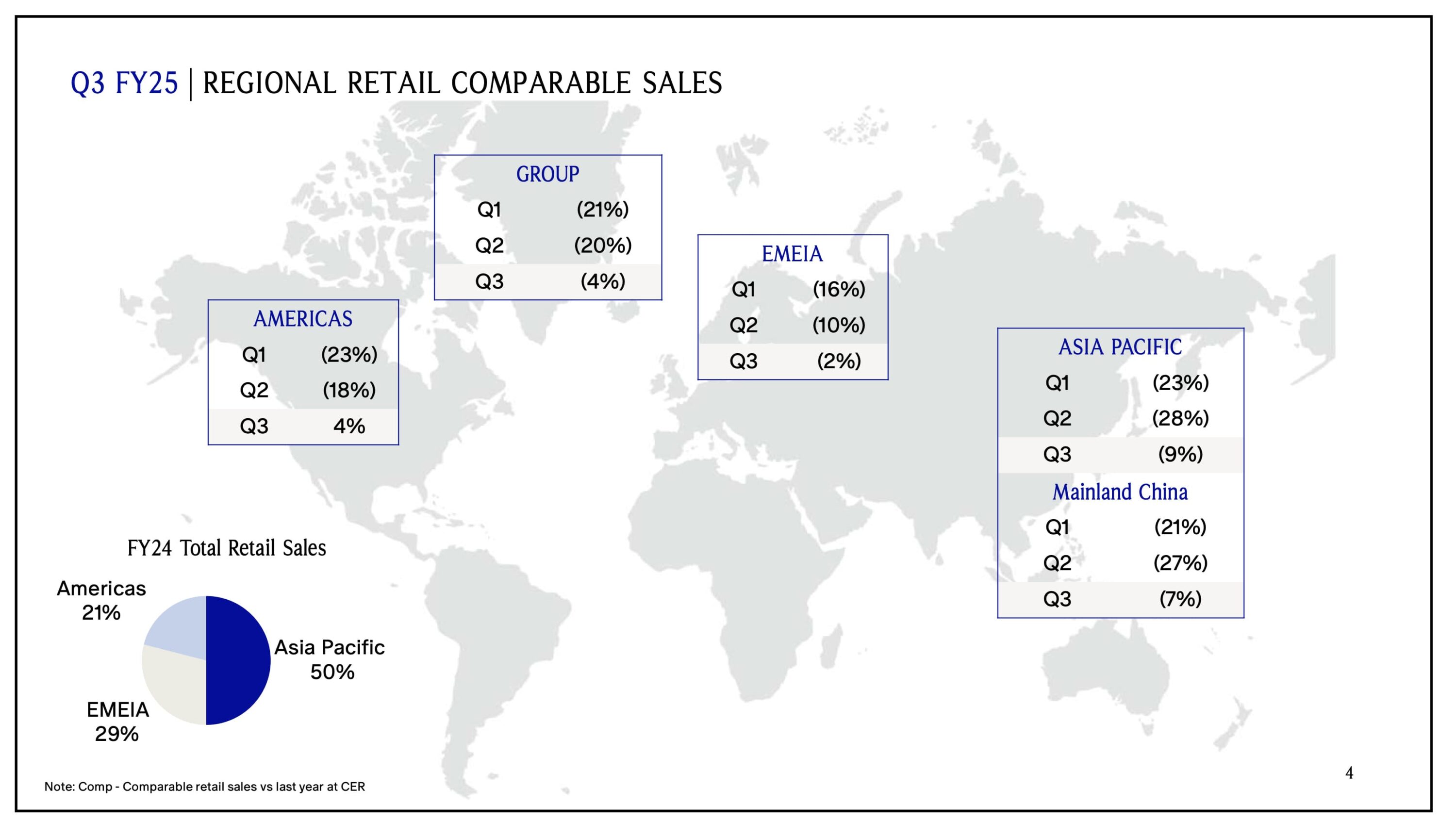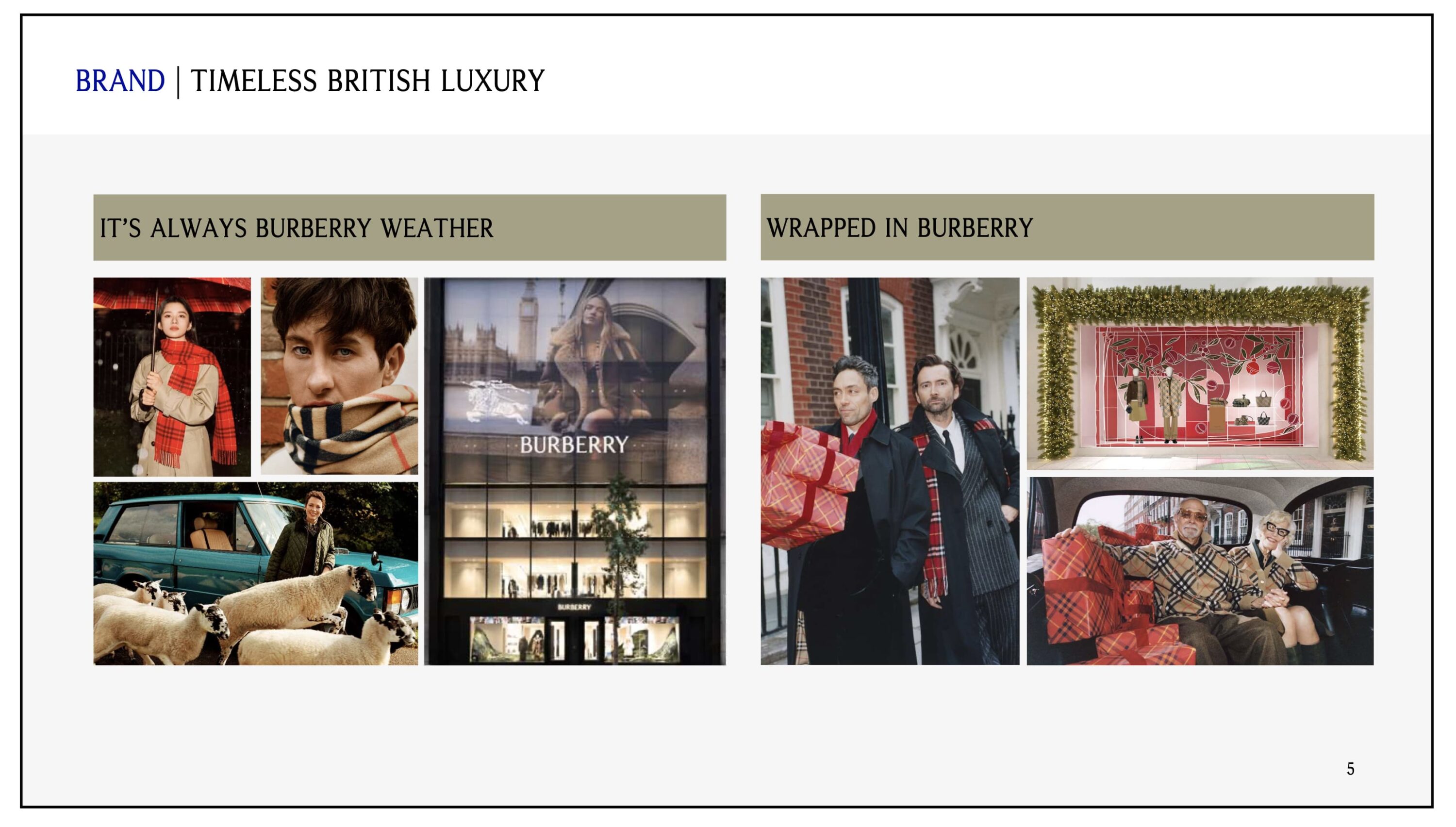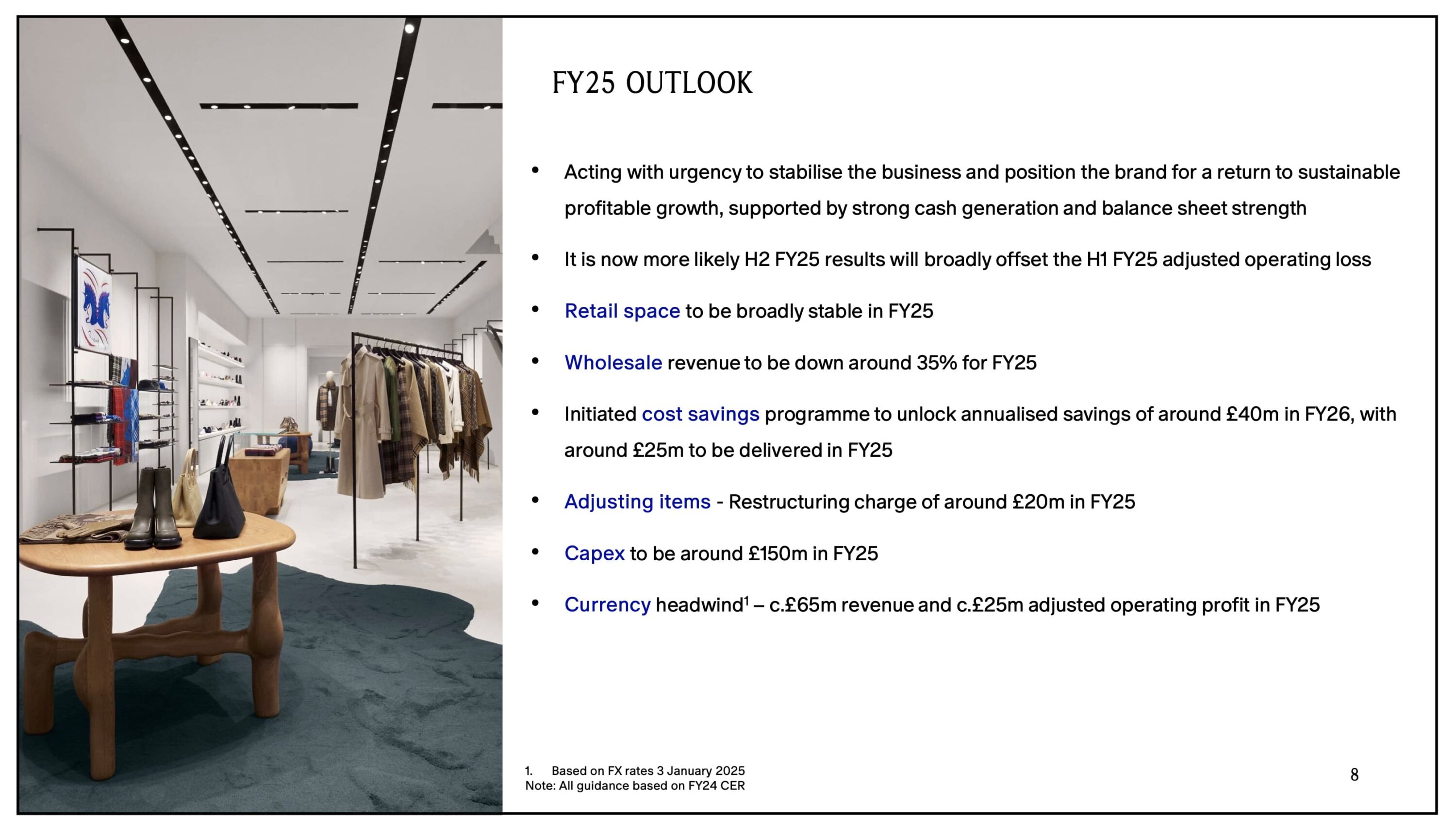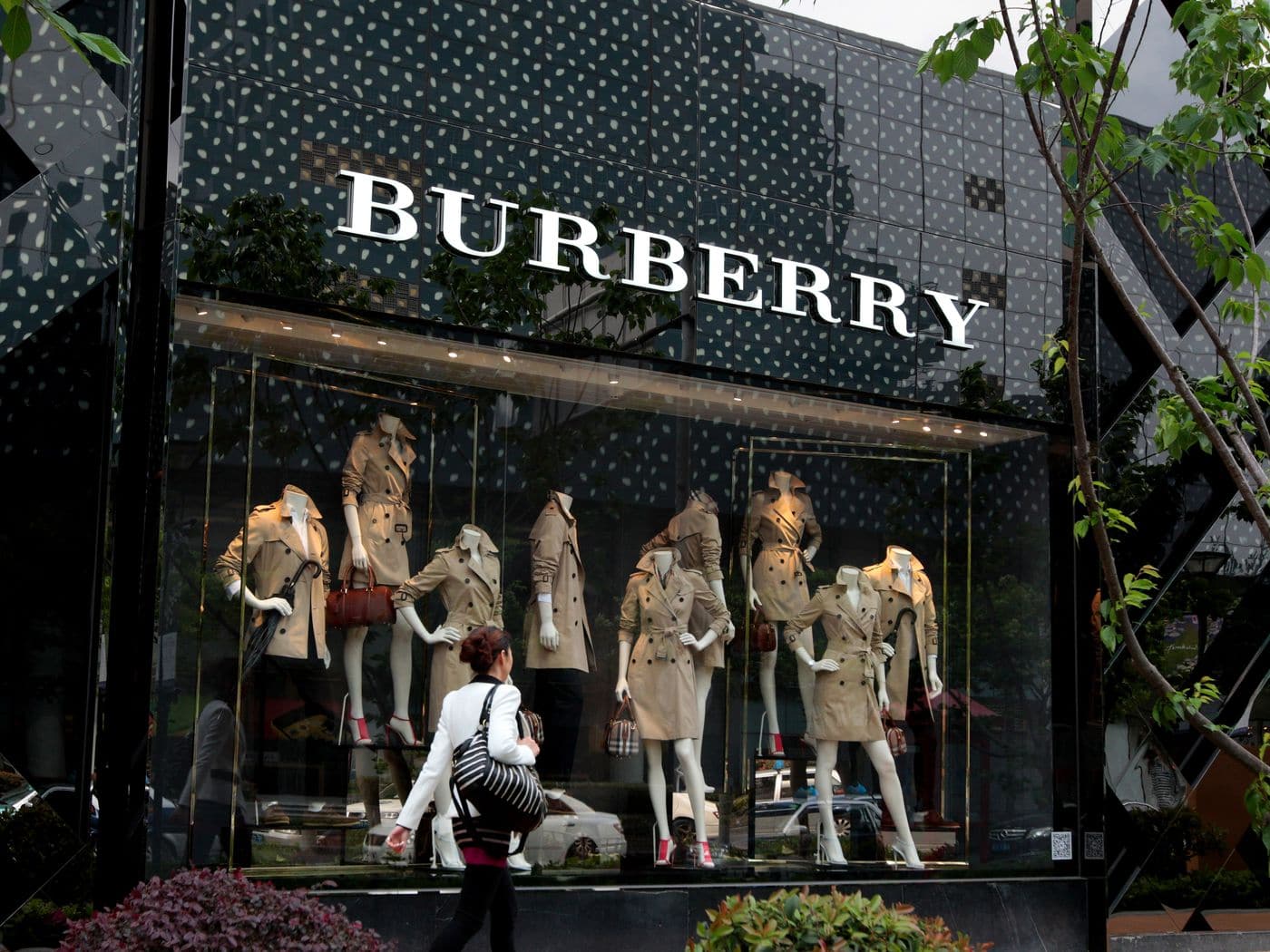The Results May Be an Early Sign of Success for New CEO Joshua Schulman’s Revitalized Strategy
Burberry Group PLC’s shares soared up to 16% early on Friday, later settling around 12.9%, after the luxury brand reported third-quarter results that surpassed expectations, suggesting early signs of success under new CEO Joshua Schulman’s revitalization strategy. The British fashion house experienced a slighter-than-anticipated 4% drop in comparable sales for the quarter ending December 28, against a forecasted 12% decline, according to a company-compiled consensus.
Despite a 7% fall in total revenue to £659 million during the festive shopping period, the company observed mixed regional performances. Sales decreased by 9% in Asia Pacific and 2% in the European, Middle East, India and Africa region. However, there was a 4% increase in the Americas, indicating a resurgence in U.S. consumer spending within the luxury sector.

CEO Joshua Schulman, who took the helm in July after leaving Michael Kors, has initiated a series of changes aiming to rekindle the brand’s appeal. “Since launching Burberry Forward in November, we have moved at pace to advance our strategy to reignite brand desire, improve our performance and drive long-term value creation,” Schulman stated, noting the transformation is still in its preliminary phase.

The strategic shift focuses on enhancing core product categories such as scarves and trench coats. Chief Financial Officer Kate Ferry commented, “That’s absolutely where we intend to get back to. At this point, it’s early days,” highlighting the brand’s commitment to its foundational elements without setting a specific timeline for the overhaul.


Analysts have reacted positively to Burberry’s efforts, with RBC analysts citing improvements in store layouts and presentations, and an effective inventory clearance through substantial markdowns. These adjustments have contributed to the brand’s improved performance, as noted by consumer discretionary analyst Mamta Valechha from Quilter Cheviot.
The luxury market overall has shown signs of recovery, as evidenced by record quarterly sales from Cartier-owner Richemont and an uptick in U.S. luxury spending, partly influenced by a stronger dollar and broader market gains. Burberry’s stock rise reflects renewed investor confidence, with shares climbing nearly a quarter through the year to date.
